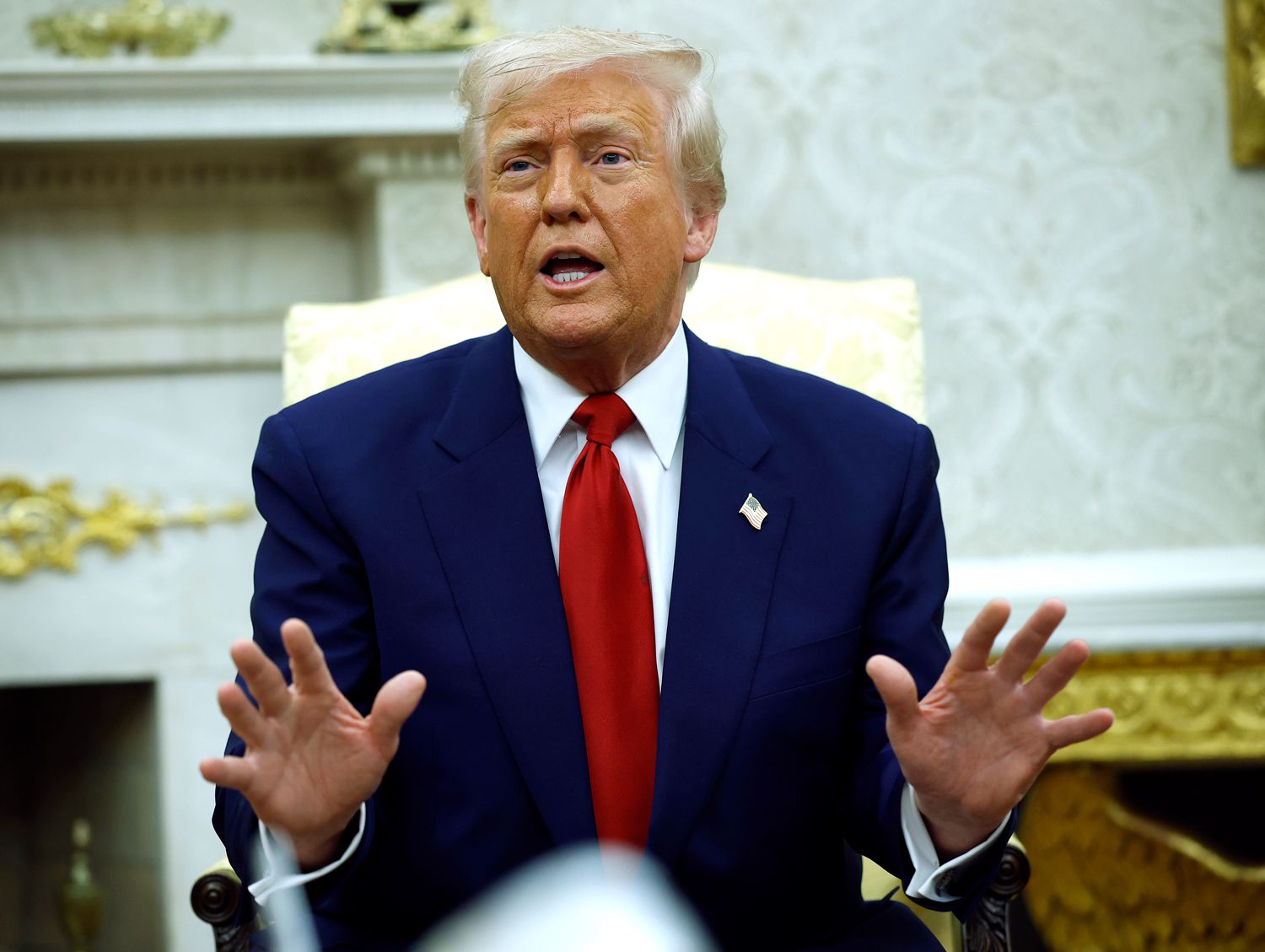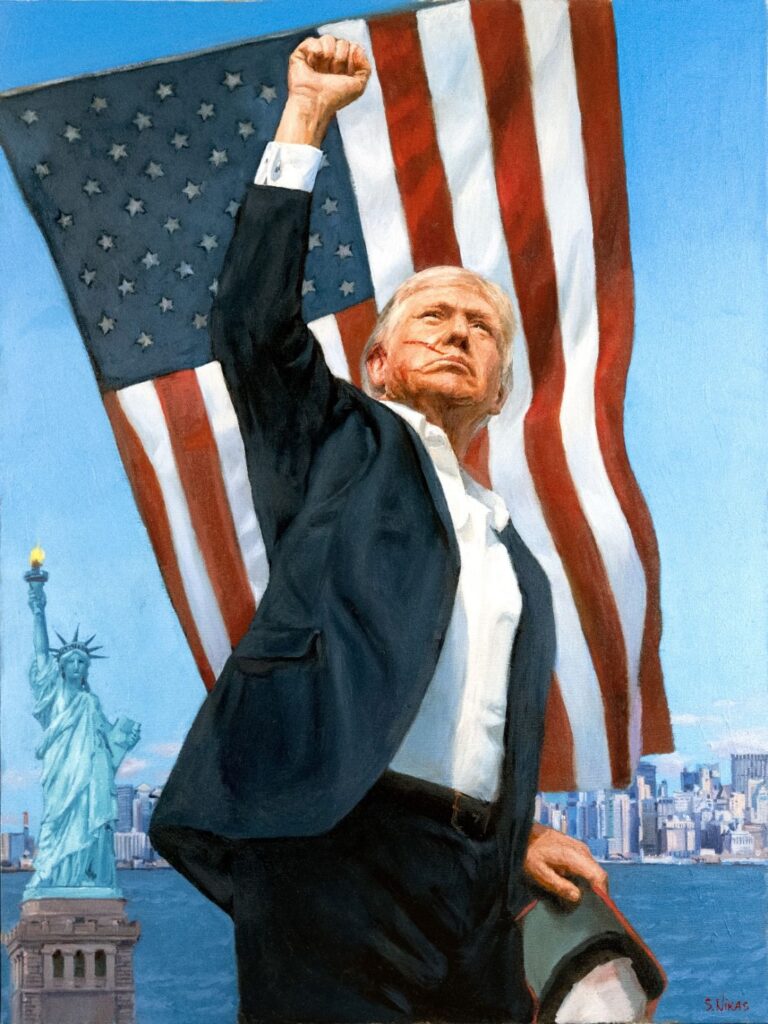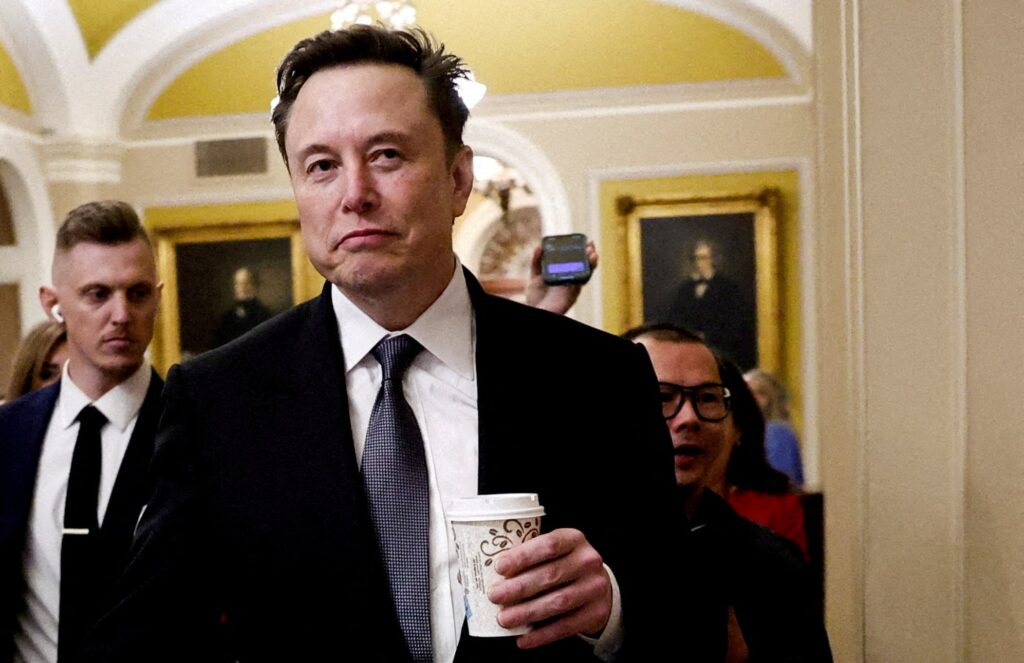Now Reading: Trump Boasts Foreign Leaders ‘Kissing My A–‘ as Massive Tariffs Take Effect
-
01
Trump Boasts Foreign Leaders ‘Kissing My A–‘ as Massive Tariffs Take Effect

Trump Boasts Foreign Leaders ‘Kissing My A–‘ as Massive Tariffs Take Effect
Trump’s ‘Legendary’ Tariffs Hit Global Economy as President Makes Bold Claims
President Donald Trump’s controversial new tariffs officially kicked into gear early Wednesday morning, and the commander-in-chief isn’t being shy about his negotiation tactics. In a statement that’s raising eyebrows across diplomatic circles, Trump declared that foreign leaders are now ‘calling us up, kissing my a–‘ in desperate attempts to secure favorable trade deals.
The sweeping tariffs, which Trump proudly called “legendary” during a Republican dinner speech, affect roughly 90 countries worldwide and represent one of the most aggressive trade moves in recent American history. With China now facing a staggering 104% cumulative tariff rate, the financial ripple effects are already being felt globally.

Global Markets Reel as New Trade Reality Sets In
The tariffs, which officially began at 12:01 a.m. on April 9, sent Asian markets into an immediate tailspin. Japan’s Nikkei plummeted 3.8%, while Taiwan’s stock market took an even harder hit with a 6% nosedive. South Korea’s currency dropped to its lowest value since 2009, and Indonesia’s rupiah hit a troubling all-time low.
On Wall Street, the reaction was equally concerning. The S&P 500 fell 1.6%, the Nasdaq Composite dropped 2.2%, and all three major indexes have retreated to their lowest points since early 2024. The Wall Street Journal described the investor sentiment as decidedly “gloomy.”
Despite this market volatility, the Trump administration remains steadfast in its belief that any short-term economic disruptions will lead to substantial long-term gains for American interests.

“Our Turn to Do the Ripping”: Trump’s Unapologetic Trade Stance
Speaking at the National Republican Congressional Committee dinner in Washington, D.C., Trump displayed his trademark confidence while defending his aggressive trade policy. “Countries are calling us up, begging to make deals,” he told the crowd of Republican supporters.
The president didn’t stop there, boldly declaring, “Many countries have ripped us off left and right. Now it’s our turn to do the ripping. We’re going to make our country even stronger—stronger than it ever was.”
In what appeared to be a message directed specifically at Republican lawmakers questioning his executive-driven approach to trade policy, Trump added, “I see some grandstanding Republicans saying, ‘Congress should take over negotiations.’ Let me tell you, you don’t negotiate like I negotiate.”
Mixed Signals: Are the Tariffs Permanent or Negotiable?
The administration has been sending contradictory messages about whether these massive tariffs are permanent fixtures or bargaining chips. On Monday, Trump indicated they could be either permanent or open to negotiation, depending on the circumstances.
Meanwhile, Treasury Secretary Scott Bessent told CBS News that the tariffs are “negotiable but not a negotiating tactic”—a distinction that has left many economic analysts scratching their heads.

White House Press Secretary Karoline Leavitt attempted to clarify the administration’s stance, insisting that “the president will talk to any country that picks up the phone.” She claimed numerous countries have already reached out to begin discussions—though Politico has reported that several world leaders are still awaiting responses to their requests for talks.
The Real Economic Impact Facing American Consumers
While the diplomatic drama unfolds, economic experts are warning about the practical implications for everyday Americans. The tariffs are expected to significantly increase import costs across a wide range of consumer goods, potentially leading to higher prices at retail stores nationwide.
Fitch Ratings offered a nuanced assessment of the situation, noting that while the tariffs may help reduce the U.S. budget deficit in 2025, any positive fiscal impact could be offset by the tariffs’ effects on economic growth and planned tax cuts.
U.S. Customs and Border Protection has already begun enforcing the new tariffs, stating they are “uniquely positioned to implement and enforce the President’s tariffs using all our enforcement and revenue collection authorities.”
What’s Next for Global Trade Relations?
As markets continue to react and foreign governments scramble to respond, the question remains: How will this bold economic gambit play out in the long term? Trump has confidently described the tariffs as “the largest transaction in the history of our country” and promised this second administration will outperform his first term’s economic achievements.
Whether these tariffs will indeed force favorable trade concessions from global partners or trigger escalating retaliatory measures remains to be seen. One thing is certain—the global economic landscape has been dramatically altered, and the ripple effects are just beginning to be felt.

For now, Trump appears fully committed to his aggressive approach, convinced that America’s economic dominance can be reasserted through these bold tariff measures—regardless of the short-term market turbulence they’ve unleashed.












